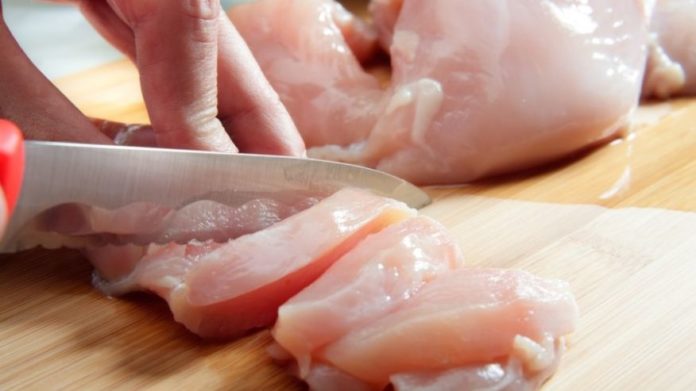WASHINGTON D.C., — For the first time, U.S. regulators on Wednesday approved the sale of chicken made from animal cells, allowing two California companies to offer “lab-grown” meat to the nation’s restaurant tables and eventually, supermarket shelves.
The Agriculture Department gave the green light to Upside Foods and Good Meat, firms that had been racing to be the first in the U.S. to sell meat that doesn’t come from slaughtered animals — what’s now being referred to as “cell-cultivated” or “cultured” meat as it emerges from the laboratory and arrives on dinner plates.
* * *
The move launches a new era of meat production aimed at eliminating harm to animals and drastically reducing the environmental impacts of grazing, growing feed for animals and animal waste.
“Instead of all of that land and all of that water that’s used to feed all of these animals that are slaughtered, we can do it in a different way,” said Josh Tetrick, co-founder and chief executive of Eat Just, which operates Good Meat.
The companies received approvals for federal inspections required to sell meat and poultry in the U.S. The action came months after the U.S. Food and Drug Administration deemed that products from both companies are safe to eat. A manufacturing company called Joinn Biologics, which works with Good Meat, was also cleared to make the products.
Cultivated meat is grown in steel tanks, using cells that come from a living animal, a fertilized egg or a special bank of stored cells. In Upside’s case, it comes out in large sheets that are then formed into shapes like chicken cutlets and sausages. Good Meat, which already sells cultivated meat in Singapore, the first country to allow it, turns masses of chicken cells into cutlets, nuggets, shredded meat and satays.
But don’t look for this novel meat in U.S. grocery stores anytime soon. Cultivated chicken is much more expensive than meat from whole, farmed birds and cannot yet be produced on the scale of traditional meat, said Ricardo San Martin, director of the Alt:Meat Lab at University of California Berkeley.
The companies plan to serve the new food first in exclusive restaurants: Upside has partnered with a San Francisco restaurant called Bar Crenn, while Good Meat dishes will be served at a Washington, D.C., restaurant run by chef and owner Jose Andrés.
Company officials are quick to note the products are meat, not substitutes like the Impossible Burger or offerings from Beyond Meat, which are made from plant proteins and other ingredients.
Globally, more than 150 companies are focusing on meat from cells, not only chicken but pork, lamb, fish and beef, which scientists say has the biggest impact on the environment.
Upside, based in Berkeley, operates a 70,000-square-foot building in nearby Emeryville. On a recent Tuesday, visitors entered a gleaming commercial kitchen where chef Jess Weaver was sauteeing a cultivated chicken filet in a white wine butter sauce with tomatoes, capers and green onions.
The finished chicken breast product was slightly paler than the grocery store version. Otherwise it looked, cooked, smelled and tasted like any other pan-fried poultry.
* * *
To read the entire article and see a video that explains the process mentioned in this story, click on this link.





